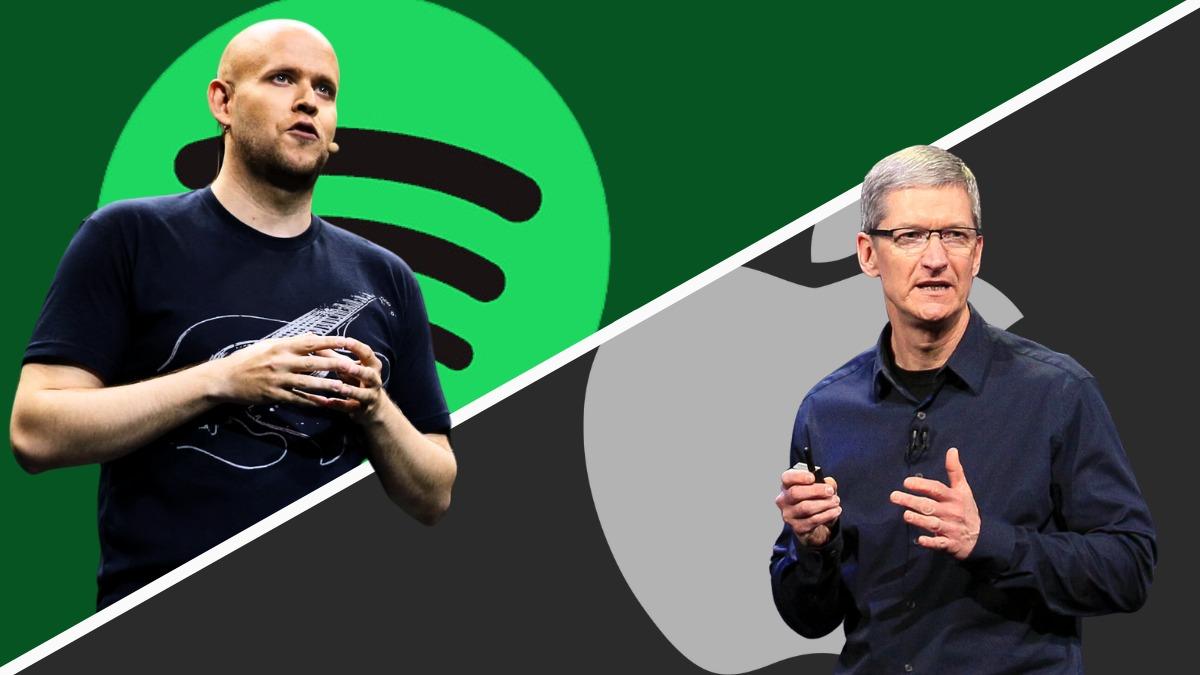The Spotify vs Apple war thickens.
Spotify’s CEO, Daniel Ek, has accused Apple of “extortion” due to the new App Store tax, labeling it as “a monopoly in disguise”. This latest development in the Apple-Spotify war centers around Apple’s Core Technology Fee, which imposes a €0.50 charge on app installations exceeding 1 million downloads.
Ek’s sharp criticism highlights the potentially crippling impact on developers, particularly for free apps, amid Apple’s increasing commission demands from alternative payment methods.
“Its a Monopoly Under a New Mask” – Says Spotify
Spotify, led by CEO Daniel Ek, has taken a strong stance against Apple’s new App Store tax, labeling it as a threat to innovation.
In a company blog post and a series of posts on social media, Ek calls Apple’s proposal “a monopoly under a different mask.” And, he further emphasized that it’s a “complete and total farce.”
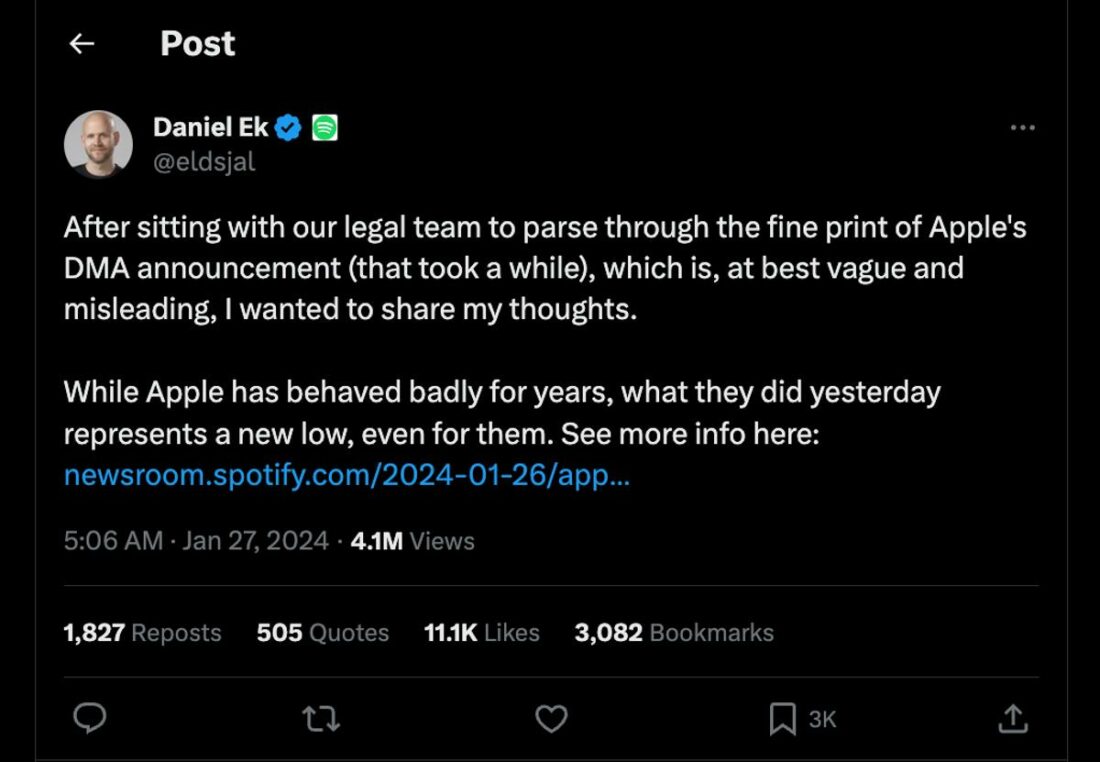
He asserts that this new scheme, including the Core Technology Fee and a 17% commission on third-party payments, is “extortion, plain and simple.”
Ek highlights that this structure punishes success, especially for developers with large EU customer bases like Spotify. This is considering the additional existing commission structure on top of the new fee.
How Apple Contradicts DMA, According to Spotify
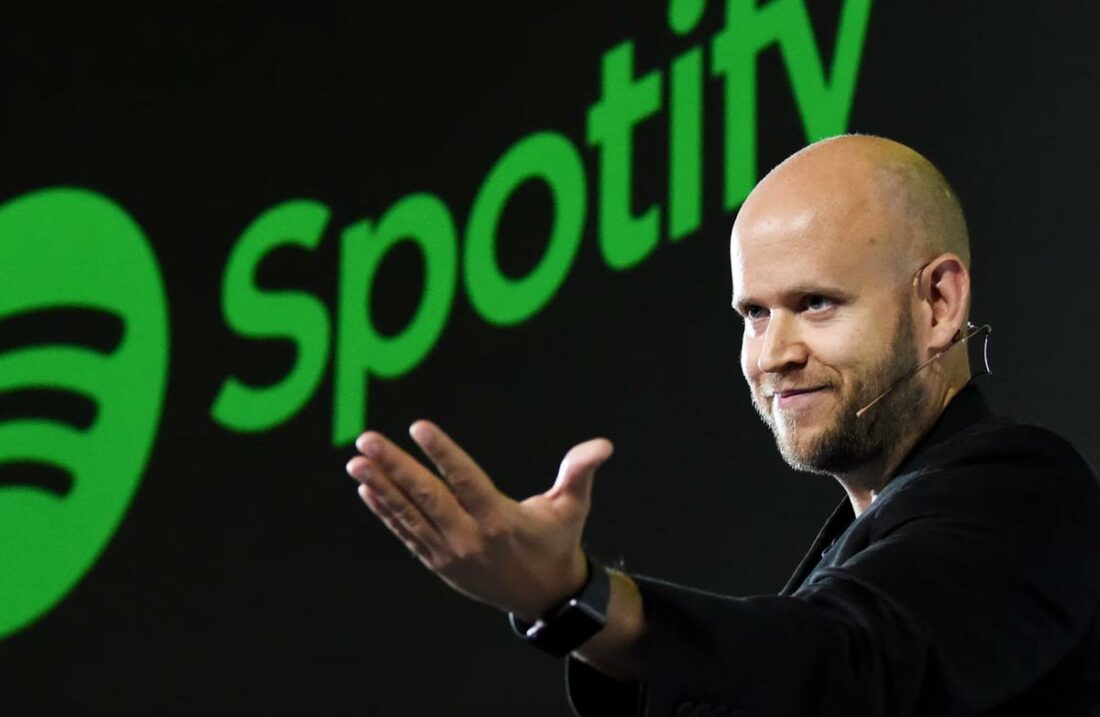
Spotify’s official statement elaborates on its stance. It indicates that Apple’s actions contradict the goals of the Digital Markets Act (DMA).
The company argues that the DMA was designed to end unfair practices and foster innovation. But, Apple’s proposal, according to Spotify, only perpetuates dominance and restricts developers’ growth.
“Sadly, this is a classic move of an old, dominant company that believes the rules don’t apply to them.
Instead of adapting and innovating, they’re twisting the situation, making it seem like the regulators are at fault. Or even worse, pretending this has to do with security when it’s clearly a ploy to drive their own profits.” says Ek.
They described Apple’s solution as a “masterclass in distortion.” They say it presents a false choice between current terms and a new, more convoluted model.
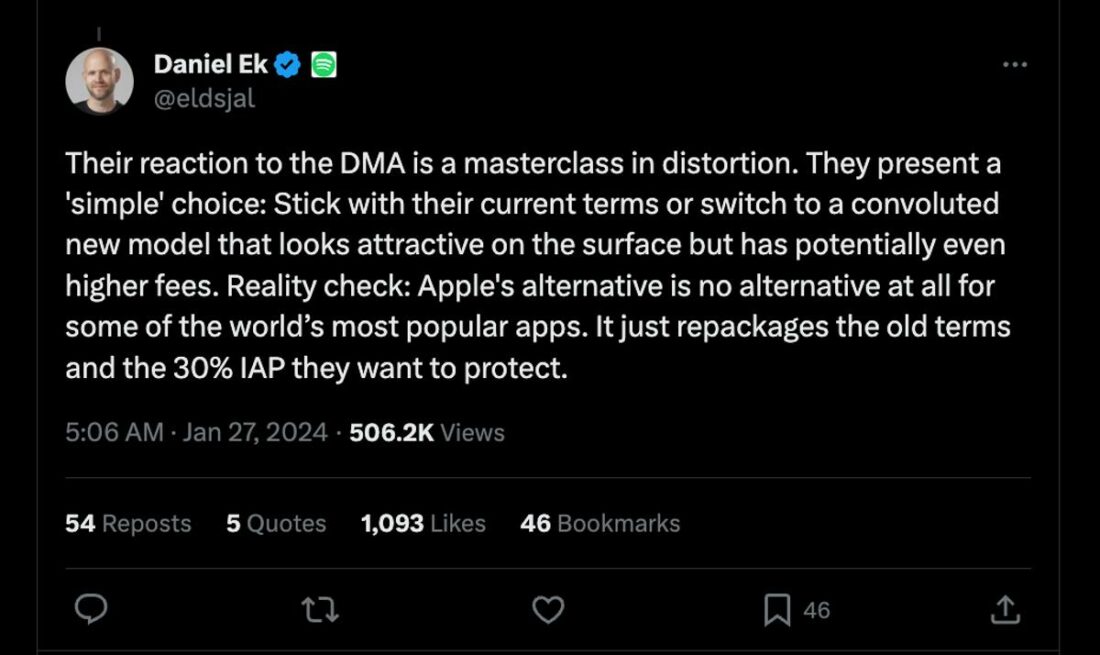
This model, Ek explains, would likely result in even higher fees for popular apps.
He argues that the system is clearly designed to deter alternative distribution methods and maintain the App Store’s power.
Ek concludes by challenging lawmakers to recognize Apple’s tactics and uphold the DMA’s principles.
Apple’s Response to Spotify’s Statement
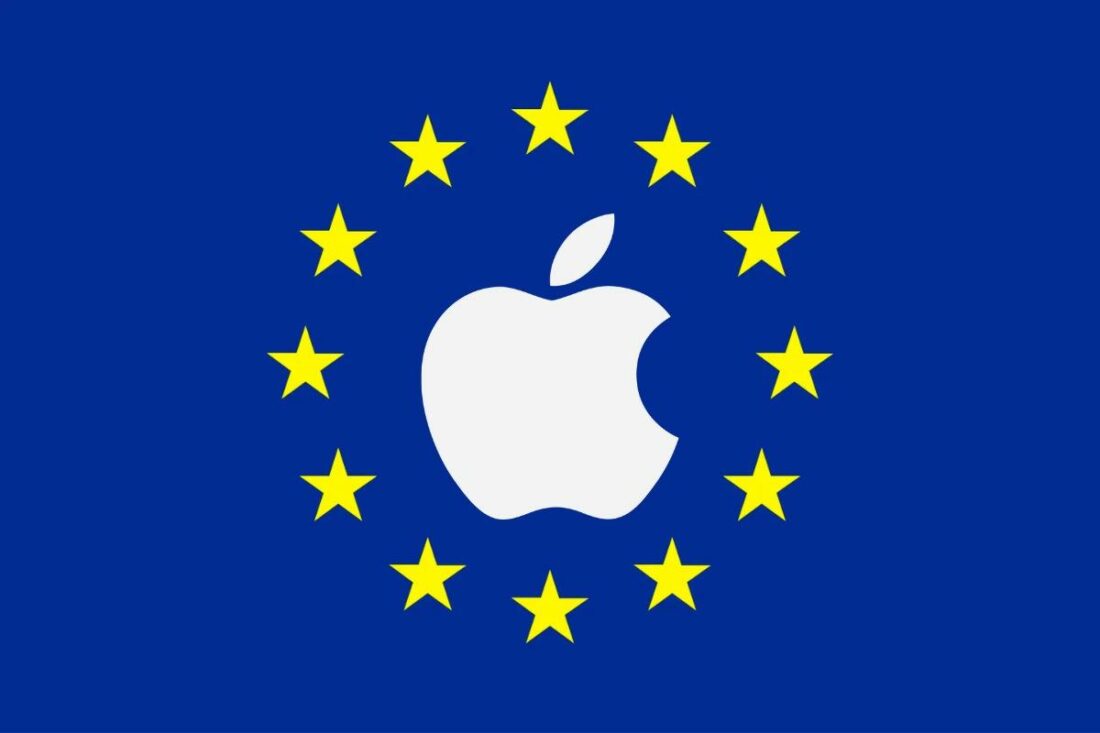
Responding to the allegations from Spotify, Apple maintains that their new App Store policies are aimed at empowering developers with more choices and flexibility, particularly in the European Union.
According to Apple spokesperson Fred Sainz, these changes are designed to give developers alternative options for app distribution and payment processing. All the while allowing them to stay on existing terms if they prefer.
“We’re happy to support the success of all developers–including Spotify, which has the most successful music streaming app in the world.
The changes we’re sharing for apps in the European Union give developers choice–with new options to distribute iOS apps and process payments. Every developer can choose to stay on the same terms in place today. And under the new terms, more than 99 percent of developers would pay the same or less to Apple.” he says.
